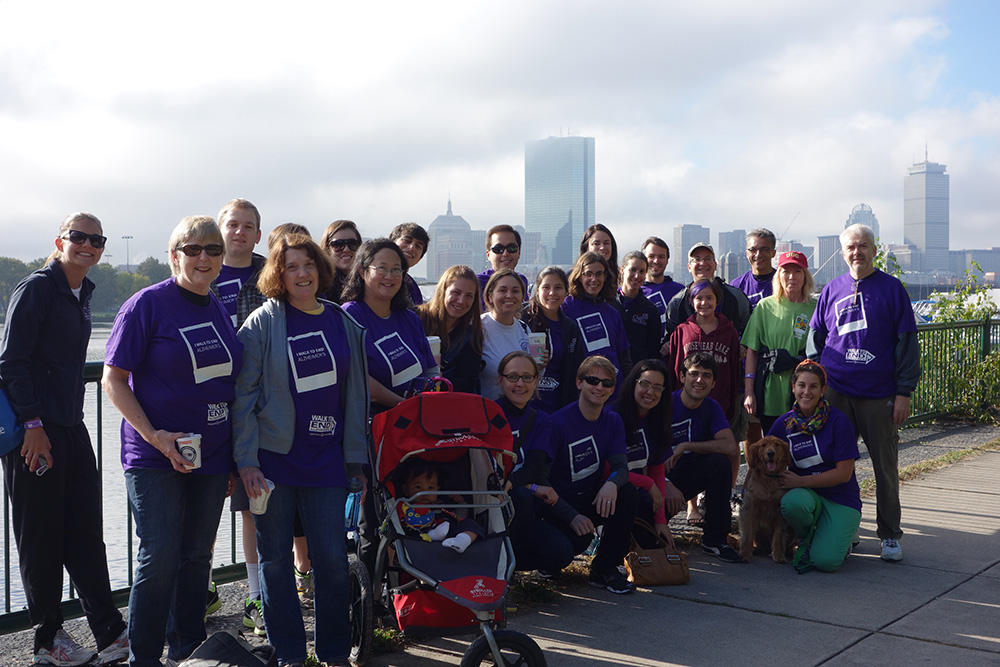As life expectancy grows to unprecedented ages, diseases of age, especially Alzheimer’s and Dementia, are becoming more and more prevalent. Accordingly, understanding and combating this disease has become a major focus of many investigators. The CNU and the Berenson-Allen Center are exploring various therapeutic methods and imaging techniques geared towards alleviating symptomology and improving the quality of life of those suffering from these debilitating diseases.
The AHeAD Study
The main purpose of this study is to understand how brain excitability, or how the brain reacts to a stimuli, can predict long-term cognition in people with mild cognitive impairment (MCI) or early Alzheimer’s disease (AD). There is research that shows that people with memory problems can have brains that are more excitable than people without memory problems. It is thought that this increase in brain excitability could make memory problems worse. This study can be done independently or may be combined with the LeAD study investigating the use of levetiracetam to treat brain excitability. Dr. Stephanie Buss is conducting this study. If you qualify for and take part in the study, you would undergo all study related visits and testing at no charge. The study requires approximately 5-6 in-person visits total and 2 phone visits. You will be compensated for your time and transportation will be provided for any in-person visits.
Gamma Induction for Amyloid Clearance in Alzheimer’s Disease
The purpose of this research study is to explore the effects of transcranial alternating current stimulation (tACS) on amyloid and tau, which build up in the brains of people with Alzheimer’s disease. Amyloid and tau are proteins found naturally in your body but can build up and form plaques and tangles that have been associated with Alzheimer’s disease. The main goal of the study is to see if tACS, a form of noninvasive brain stimulation, can decrease the amount of amyloid and tau in the brain by applying the tACS at a frequency of naturally occurring waves in your brain called gamma oscillations. If you are interested in joining this study, you will have some testing to see if you qualify, including memory and thinking tests and an amyloid Positron Emission Tomography (PET) scan, as well as a tau PET scan. If you participate in the study, you will undergo 2 or 4 weeks of daily or twice daily tACS sessions lasting approximately 1 hours each followed by some repeat follow up testing.
The LeAD Study
The main purpose of this study is to see if a medication, levetiracetam (LEV), can improve cognition (thinking) in people with MCI and early AD. There is research that shows that people with memory problems can have brains that are more excitable than people without memory problems. It is thought that this increase in brain excitability could make memory problems worse. LEV is a medication that is commonly used to treat people with seizures. It is thought that LEV may be also be used to decrease brain excitability in people with memory problems. The hope is that this would help to improve thinking in people with MCI and early AD. If you qualify for and take part in the study, you would undergo all study related visits and testing at no charge. The study requires approximately 15 visits total. You will be compensated for your time and for parking at the hospital.
The GIFTeD Study
The purpose of this study, conducted by Emiliano Santarnecchi, PhD, is to investigate the safety, tolerability and effectiveness of 6 weeks of non-invasive brain stimulation in people with Frontotemporal Dementia (FTD). People with FTD can have a decrease in how their brain uses glucose (sugar) for energy and functioning. This study will investigate whether transcranial alternating current stimulation (tACS) can affect brain activity to improve how your brain uses glucose (sugar). The main goal of the study is to see if tACS, a form of noninvasive brain stimulation, is safe, effective and tolerable in the brain by applying the tACS at a frequency of naturally occurring waves in your brain called gamma oscillations, to see whether there is an increase or decrease in brain activity after tACS. If you are interested in joining this study, you will have some testing to see if you qualify, including memory and thinking tests, a Fluorodeoxyglucose Positron Emission Tomography (FDG-PET) scan, as well as an MRI. If you participate in the study, you will undergo 6 weeks of daily tACS sessions lasting approximately 1 hour each followed by some repeat follow-up testing.
Janssen AuTonomy Study
The purpose of this study is to evaluate the safety and efficacy of a new investigational medication for people with early Alzheimer’s disease (AD). This is a phase 2 study of a monoclonal antibody targeting tau. The study drug is given by intravenous (IV) infusion. Tau is a protein that accumulates in the brains of people with AD. This study looks at whether removing tau will improve memory and thinking in individuals with AD. This study will compare the investigational medicine with a placebo. The study is testing 2 doses of the investigational medicine so the chances of receiving placebo are 1 out of 3. If they are eligible, participants will receive the study drug once every month for up to 4.5 years. They will visit the study doctor or study team every 4 weeks. People who are eligible to take part will receive study-related medical care and the study drug at no cost.
If you are interested in learning more about the above studies, please contact 617-667-0249 or email: alz@bidmc.harvard.edu.
Delirium as a Risk Factor for Dementia
Dr. Fong (in conjunction with her colleagues at the Institute for Aging Research, Hebrew SeniorLife) is examining long-term cognitive outcomes in individuals following an episode of delirium, as well as whether pre-clinical Alzheimer’s disease pathology is a marker of brain vulnerability to delirium.
For additional information, see the following staff bios:
Dr. Fong


